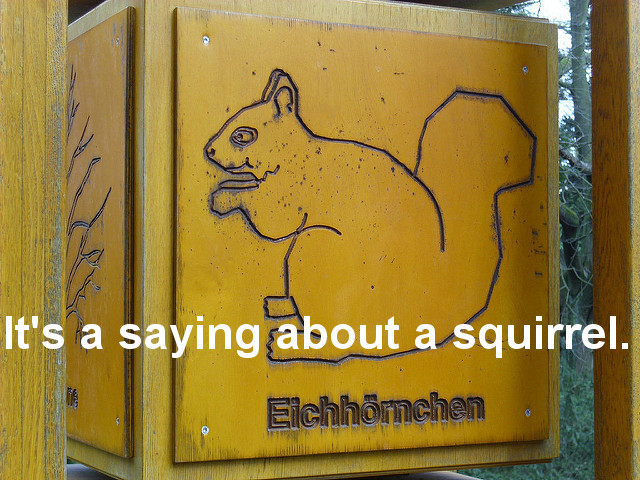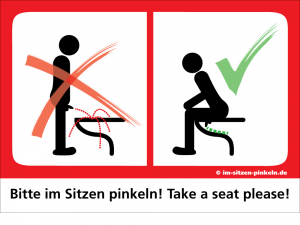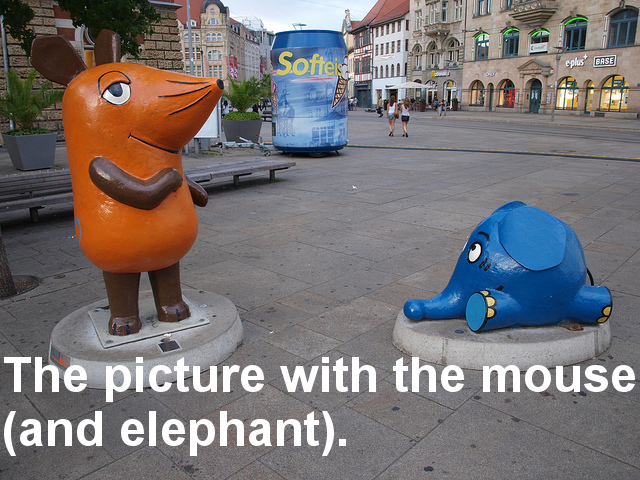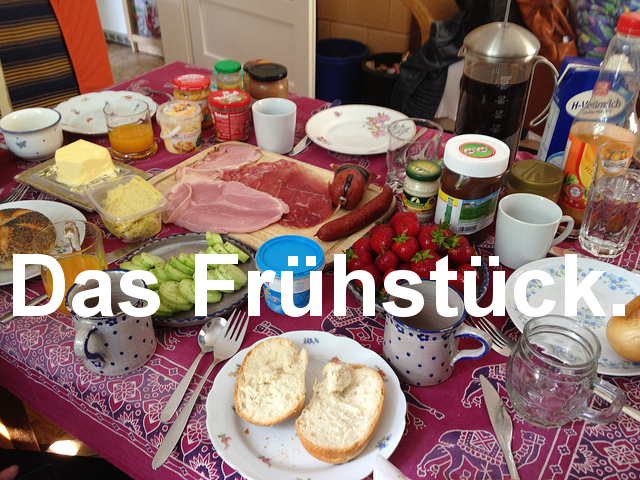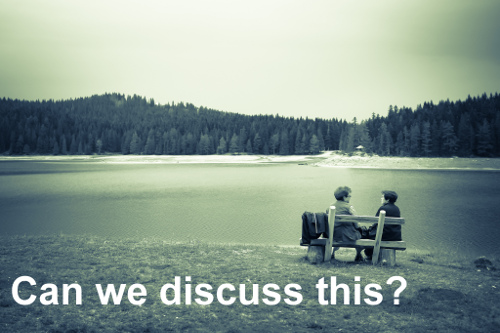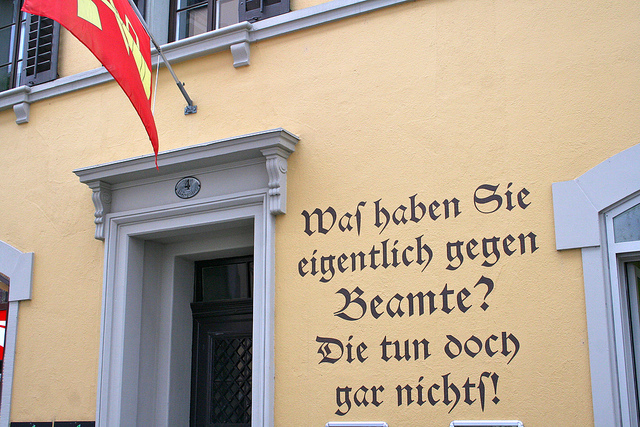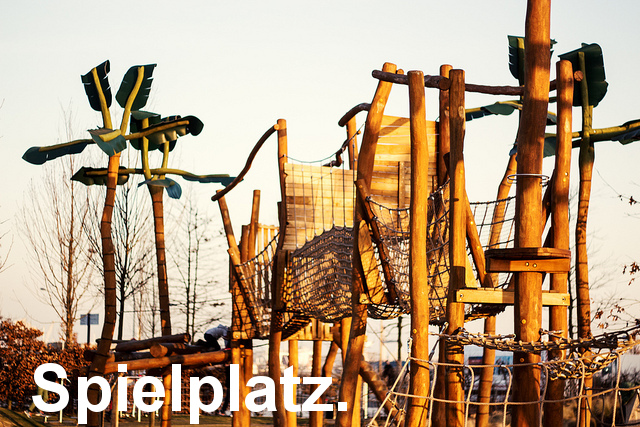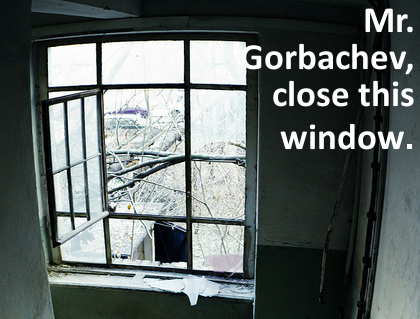It’s that time of year again. That time when small huddles of coated humanity start sprouting in the tiny slivers of sunshine that appear in front of cafes all over Germany. Like meerkats in a field or bread mold on far flung regions of forgotten, two-week-old Brötchen (bread roll).
When I first moved to Germany, I didn’t understand. I would meet friends in a café for a coffee and, after finally getting a bit warm, they would exclaim: “Let’s sit outside! There’s a table open in the sun!”
And I would cringe.
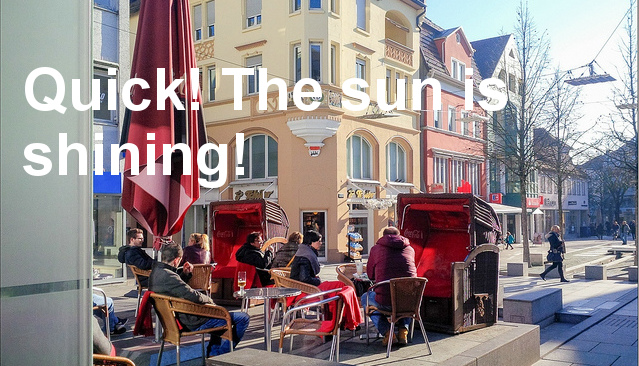
We would wrap our scarves scarf back around our necks, button up our coats and head out into the dying March light to sip quickly cooling coffee. My strategy was always to take big sips to get the last of the lukewarm coffee hiding from the cold in the middle of the mug.
“The sun feels so good,” someone would always say, smiling and gripping their warm coffee cups.
The heater inside felt good, I would think.
The people who force you to sit in the sun on an otherwise wintery day are the same people who, in college, would suggest we have class outside on the first warm days of spring. I was always outvoted and would schlepp everything outside only to discover the weather was so good that no one could concentrate and the test preparation would be forgotten.
And I’d have to study more at home. Just because the weather was good.
I blame my poor college grades on that person. Because we always accomplished more in the classroom. And had less grass and dead bugs in our textbooks.
But it’s not like I don’t understand the huddling in Germany. After several years in-country I do.
It’s because German cold is a special kind of cold. German cold – Deutsche Kälte – needs to be factored in when considering winter weather, like wind chill or whatever that thing is that people call a wet cold. German winters aren’t just cold, they’re German cold.
And when the German cold begins to admit defeat to – ok – German warmth, it’s best to embrace and complement that warmth lest it be scared away and café-goers accidentally usher in a new Ice Age (though, admittedly, when the new Ice Age does come, we’ll all be looking for that quirky squirrel hunting the acorn). When the warmth and the sun return in Germany, you have to offer support and encouragement. German warmth is a shy warmth.
So in the coming days, when you walk by one of those huddled masses of coffee sippers on the sidewalk, you just might see me there.
2 Comments